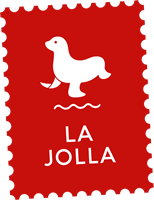Beware: Owning Certain Dog Breeds Can Raise Your San Diego Home Insurance

Yes, San Diego is a pet-friendly paradise, from beaches to wineries. But pooch parents can be brought to heel by renters and homeowners insurance companies, who want to up their premium for certain breeds of dogs.
If you own a dog, you are well aware of how unique animals can be. However, many people are unaware that having a dog might affect your home insurance rate and make getting insurance increasingly challenging.
Each year, millions of individuals are attacked by dogs, with children accounting for most attacks. Dogs can not only harm other people, but they can also cause significant damage to other animals, your house, or the belongings of others.
Most homeowners insurance policies cover dog bites. However, insurers consider some dog breeds to be a higher risk than others. So your Siberian husky homeowners insurance may cost more than it would if you were insuring your home with a Pomeranian or another insurer-friendly breed.
Below, find out why insurers charge more for certain breeds, what breeds worry them, and what happens if your dog is a breed that is restricted by insurers.
Which Dog Breeds are Insurers Concerned About?
Dog breeds that are known to bite or cause liabilities are frequently a source of concern for insurance providers. These are usually larger canines that can be more aggressive and stronger than smaller breeds.
In most cases, dog owners can tell if their dog is a risk by how they act around other people and animals. For example, if your pup frequently agitates other dogs when playing at a dog beach or park, then this may be a sign of them being aggressive, making them a liability.
Pit bulls, rottweilers, Doberman pinschers, German shepherds, Siberian huskies, Akitas, and wolf-dog hybrids are among the dog breeds that will raise your insurance premiums.
When it comes to insuring homes with dogs, each insurance company has its own list and regulations, with some firms ready to cover nearly any dog. Some dog breeds that are frequently limited on homeowner’s insurance policy include:
- Akita
- Alaskan Malamute
- American pit bull terrier
- Chow Chow
- Cane Corso
- Doberman Pinscher
- German Shepherd
- Great Dane
- Presa Canarios
- Rottweiler
- Siberian Husky
- Staffordshire Bull Terrier
- Wolf Hybrid
Before bringing a new dog into your home, check with your insurance agent to see whether the dog is on your carrier’s breed list and what that means for your family financially. You should also spend a lot of time researching these breeds to see what environments are best for them. You may love the look of a Rottweiler but shouldn’t own one in a downtown studio apartment, you are asking for trouble.
You also need to be honest with yourself, what kind of owner are you going to be? Will you be able to keep your dog very well-exercised and stimulated? Will your dog get many hours of socialization when they are a puppy to learn about being near other dogs, humans, or children? Will you be willing to invest in dog training, boarding, or supplements like cbd dog treats and bones for chewing so that your dog doesn’t suffer from anxiety or boredom?
Even though some people may choose not to tell their insurance provider about their dog due to the chance of getting a higher premium, don’t do this. You are risking having to pay for legal and medical expenses out of pocket if something goes wrong.
Why are some dog breeds prohibited by insurance companies?
Several home insurance providers prohibit certain dog breeds due to the increased risk of liability claims. Even the most well-behaved dogs can bite, and certain dog types are more prone to cause injury than others.
Furthermore, dog bite claims are on the rise every year. When you file an insurance claim to cover the costs of injuries caused by a dog on a restricted breed list, the insurance company may find it prohibitively expensive to compensate every time a dog bites someone.
Restricted breed listings, on the other hand, are a source of contention. Many people, especially dog lovers, believe that judging a canine breed’s risk level solely on its outward appearance is unethical and inaccurate.
There is no promise that dogs that aren’t on the restricted list won’t become violent and bite. Furthermore, a restricted breed dog isn’t promised to create issues or be a liability.
What happens if you have a dog breed that is prohibited?
Your home insurance coverage may be affected if you own a dog on the breed list mentioned above or is prohibited by an insurance company. Below are various ways that a restricted dog breed may affect your insurance policy.
Your Insurance Premium May Increase
Bills like your energy bill are not always easy to control. But in this case, your insurance premium is an expense that can be easily manipulated when precautions are taken while choosing a fur-baby.
Your home insurance rate may increase if you own a particular breed of dog. Because certain dog breeds are renowned for biting and causing other problems, you’re more likely to need to submit an insurance claim. To compensate for the possibility of a claim and reimbursement, your insurance provider boosts your premium.
You May Be Denied Coverage
In some severe cases, your insurance coverage might be rejected because of your dog. This is especially true if it has a history of violent behavior. Some insurance providers prohibit restricted dog breeds.
Even if you already have a policy and add a prohibited dog breed to your family, your insurance provider may refuse to renew your coverage when the policy time expires.
Alternatively, your insurance provider may drop you if you file a claim after your dog bites someone.
For instance, if your dog gets into an altercation with another dog and leaves them (or their owner) injured while bathing in the public shower after a beach day, your insurer may choose to decline your claim and drop you as a client.
There Are Insurance Exclusions
Certain dog breeds may be eligible for standard house insurance coverage, but there will be exclusions.
Usually, insurance carriers who use this approach would eliminate liability coverage from your policy. This implies that if your dog hurts someone or destroys their home, you will be responsible for their medical bills and property repairs.
Which insurance providers accept all dog breeds?
If you have a specific dog breed, insurance companies may refuse to insure you. However, not every business maintains a list of prohibited breeds. Anyone with a dog, regardless of breed, can get insurance from Amica, Chubb, Fireman’s, Nationwide, State Farm, and USAA.
Other insurance companies may avoid using a restricted breed list, but it would take simply asking to find out. However, most businesses that don’t use a breed list will check into the dog’s history of attacks and aggression.
As a result, if your dog bites someone, you may be refused coverage. If your dog, on the other hand, has never bitten anybody or been violent, you should have no trouble finding coverage from one of these companies.
In conclusion, you must know that some insurance companies restrict coverage for owners with specific dog breeds. This can drastically hinder your monthly finances if you are not prepared to be dropped by your provider or increase your premium rate.
Even if you have one of these breeds, though, you may still acquire homeowners insurance. You can look for a carrier that doesn’t refuse coverage based on a pet’s breed. Or, you can get extra coverage to cover yourself from risks caused by owning a dog.
About the author: Imani Francies writes and researches for the insurance comparison site, USInsuranceAgents.com. She enjoys sharing information about dog breeds to help people make the best decisions with their pets and home insurance.





